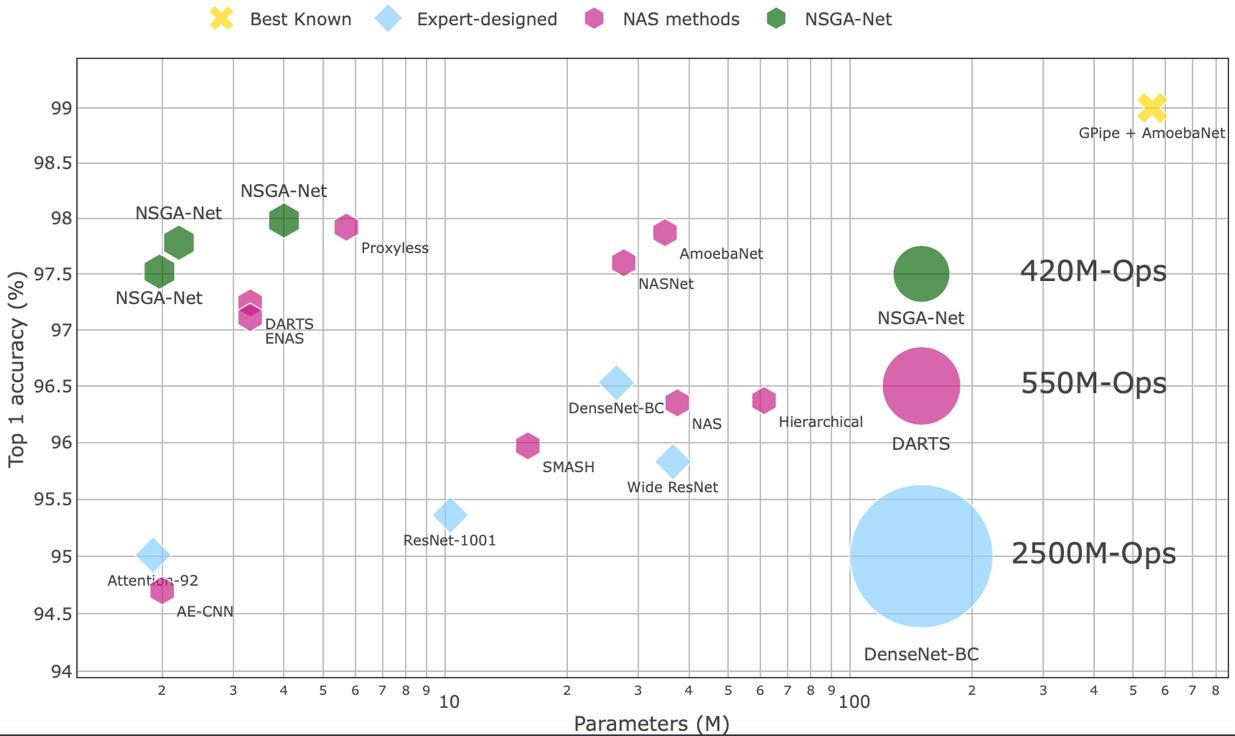Code accompanying the paper. All codes assume running from root directory. Please update the sys path at the beginning of the codes before running.
NSGA-Net: Neural Architecture Search using Multi-Objective Genetic Algorithm
Zhichao Lu, Ian Whalen, Vishnu Boddeti, Yashesh Dhebar, Kalyanmoy Deb, Erik Goodman and Wolfgang Banzhaf
arXiv:1810.03522
Python >= 3.6.8, PyTorch >= 1.0.1.post2, torchvision >= 0.2.2, pymoo == 0.3.0
The easiest way to get started is to evaluate our pretrained NSGA-Net models.
Macro search space (NSGA-Net-macro)
python validation/test.py --net_type macro --model_path pretrained/cifar10/macro.pt- Expected result: 3.73% test error rate with 3.37M model parameters, 1240M Multiply-Adds.
python validation/test.py --net_type micro --arch NSGANet --init_channels 26 --filter_increment 4 --SE --auxiliary --model_path pretrained/cifar10/micro_26_4_se.pt- Expected result: 2.43% test error rate with 1.97M model parameters, 417M Multiply-Adds (weights.pt).
python validation/test.py --net_type micro --arch NSGANet --init_channels 34 --filter_increment 4 --auxiliary --model_path pretrained/cifar10/micro_34_4.pt- Expected result: 2.22% test error rate with 2.20M model parameters, 550M Multiply-Adds (weights.pt).
python validation/test.py --net_type micro --arch NSGANet --init_channels 36 --filter_increment 6 --SE --auxiliary --model_path pretrained/cifar10/micro_36_6_se.pt- Expected result: 2.02% test error rate with 4.05M model parameters, 817M Multiply-Adds (weights.pt).
python validation/test.py --task cifar100 --net_type micro --arch NSGANet --init_channels 36 --filter_increment 6 --SE --auxiliary --model_path pretrained/cifar100/micro_36_6_se.pt- Expected result: 14.42% test error rate with 4.1M model parameters, 817M Multiply-Adds (weights.pt).
To validate the results by training from scratch, run
# architecture found from macro search space
python validation/train.py --net_type macro --cutout --batch_size 128 --epochs 350
# architecture found from micro search space
python validation/train.py --net_type micro --arch NSGANet --layers 20 --init_channels 34 --filter_increment 4 --cutout --auxiliary --batch_size 96 --droprate 0.2 --SE --epochs 600
You may need to adjust the batch_size depending on your GPU memory.
For customized macro search space architectures, change genome and channels option in train.py.
For customized micro search space architectures, specify your architecture in models/micro_genotypes.py and use --arch flag to pass the name.
To run architecture search:
# macro search space
python search/evolution_search.py --search_space macro --init_channels 32 --n_gens 30
# micro search space
python search/evolution_search.py --search_space micro --init_channels 16 --layers 8 --epochs 20 --n_offspring 20 --n_gens 30 Pareto Front | Network
:-------------------: | :------------------------:
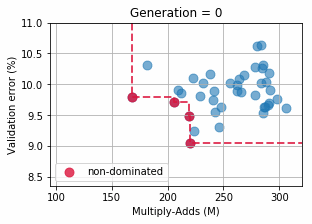 |
| 
| Pareto Front | Normal Cell | Reduction Cell |
|---|---|---|
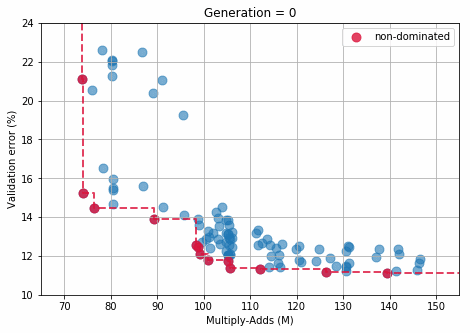 |
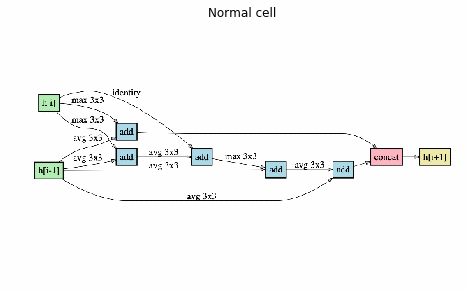 |
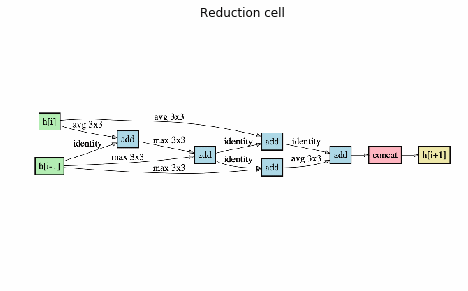 |
If you would like to run asynchronous and parallelize each architecture's back-propagation training, set --n_offspring to 1. The algorithm will run in steady-state mode, in which the population is updated as soon as one new architecture candidate is evaludated. It works reasonably well in single-objective case, a similar strategy is used in here.
To visualize the architectures:
python visualization/macro_visualize.py NSGANet # macro search space architectures
python visualization/micro_visualize.py NSGANet # micro search space architecturesFor customized architecture, first define the architecture in models/*_genotypes.py, then substitute NSGANet with the name of your customized architecture.
If you find the code useful for your research, please consider citing our works
@article{nsganet,
title={NSGA-NET: a multi-objective genetic algorithm for neural architecture search},
author={Lu, Zhichao and Whalen, Ian and Boddeti, Vishnu and Dhebar, Yashesh and Deb, Kalyanmoy and Goodman, Erik and Banzhaf, Wolfgang},
booktitle={GECCO-2019},
year={2018}
}
Code heavily inspired and modified from pymoo, DARTS and pytorch-cifar10.

